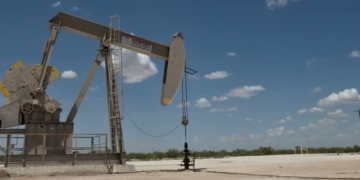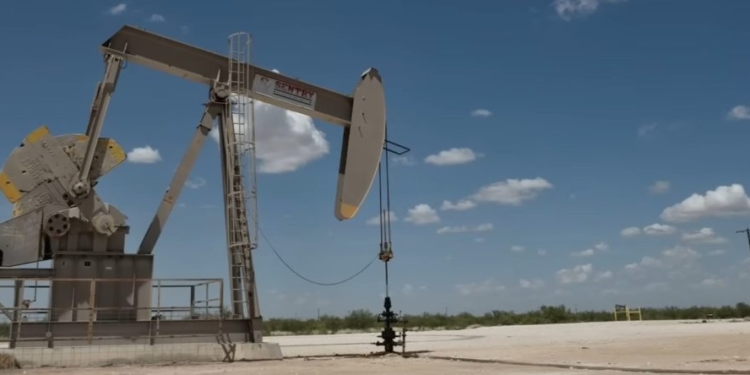By now it should be obvious to everyone that, if America is to have any hope of maintaining a stable power grid and a strong level of national energy security, the pace of permitting for major energy-related projects must be dramatically accelerated. Fortunately, President Donald Trump and his cabinet officials recognize this national imperative and have moved quickly to begin to address it.
The fact that it takes so long to gain permit approvals for energy projects of all kinds is one of the main reasons why the U.S. has fallen so far behind China in this arena. Two years ago, I detailed the fact that it took 18 years for developers of a single high-voltage transmission system – the TransWest Transmission project – to secure all of the local, state, and federal permits required just to kick off construction. Building the 732-mile line which will carry electricity generated by wind energy projects in Wyoming to West Coast markets will take another 4 years, with the project scheduled to go live in 2027.
So, 18 years to permit, 4 years to build it. If that seems like an imbalance to you, you are not alone.
Permitting a new mining operation can take even longer, often as long as 20 years to complete. The same is true for major new nuclear facilities. Permitting for new, large oil refineries is so complex and difficult that no new greenfield refinery has been built in the U.S. in more than 40 years.
Obtaining drilling permits on federal lands in the Southeast New Mexico Permian Basin can take 4-5 times longer than getting a similar permit to drill a well on private lands in that state. Even in the Gulf of Mexico, where the federal government is the sole permitting authority, companies must spend 7-10 years waiting before they can commence operations.
This is obviously not a sustainable situation, especially with so many major new demand drivers coming online in our society in the form of AI datacenters, crypto-mining, electric vehicle charging, and others. Some of America’s regional power grids were already experiencing significant reliability issues before any of those additional power hogs came along.
To address this and other major energy security matters, President Trump moved in February to establish the National Energy Dominance Council (NEDC), naming Interior Secretary Doug Burgum to serve as chairman, with Energy Secretary Chris Wright serving as vice chair. The NEDC quickly instructed all relevant government departments to develop plans to speed permitting activities through executive branch actions which don’t require acts of congress, where lack of consensus has doomed repeated legislative efforts in recent years. That effort has already borne fruit, speeding the final permitting approvals for a variety of mining, nuclear, and oil and gas projects.
But more is needed, and the NEDC more recently Emily Domenech as the new chairperson for the Federal Permitting Improvement Steering Council, otherwise known as the Permitting Council. Established during the Biden administration under the Fixing America’s Surface Transportation Act, Domenech told the Washington Examiner recently that the Council’s role is to act as a sort of “sherpa” to help guide major energy projects through the federal government’s Byzantine minefield of rules and regulations.
None of this is easy work. Proponents of faster permitting invariably discover that the vast majority of permitting delays at the federal level stem from major environmental protection laws, like the Clean Air Act, the Clean Water Act, the Endangered Species Act, and the National Environmental Policy Act, to name a few. These are bipartisan laws with broad-based national support. Most, if not all, were passed by Democrat-dominated congresses and signed into law by Republican presidents.
As a result, efforts to streamline permitting under these laws can become a political minefield, attracting opposition from major conflict groups largely funded by billionaire-backed NGOs and foundations with names like Rockefeller, Gates, Bloomberg, and Park.
Additional delays stem from national and state antiquities acts designed to project archeological sites which often involve Native American rights. Still others run into private property rights of landowners and other stakeholders.
It’s a huge job, in other words, and we should all be grateful to Ms. Domenech for her willingness to take it on and wish her great success. America’s continued energy security depends on it, in fact.
David Blackmon is an energy writer and consultant based in Texas. He spent 40 years in the oil and gas business, where he specialized in public policy and communications.
The views and opinions expressed in this commentary are those of the author and do not reflect the official position of the Daily Caller News Foundation.
All content created by the Daily Caller News Foundation, an independent and nonpartisan newswire service, is available without charge to any legitimate news publisher that can provide a large audience. All republished articles must include our logo, our reporter’s byline and their DCNF affiliation. For any questions about our guidelines or partnering with us, please contact [email protected].



























 Continue with Google
Continue with Google